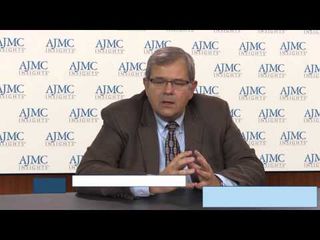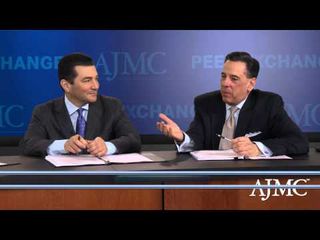
Value-Based Care
Latest News
Latest Videos

CME Content
More News



Being admitted to the hospital on the weekend is associated with an increased likelihood of a hospital-acquired condition, which in turn increases cost and length of stay, reported researchers from the University of Southern California.

There are concerns that retail clinics provide inferior quality of care. The authors found no difference in quality among retail clinics, physician offices, and emergency departments.

The authors report on a conceptual "specialty ACO" design in cardiology in which cardiology-specific historic spending targets are created to capture cardiovascular disease—related reimbursement and a quality measurement system is introduced.


Missouri already spends $1.2 billion on Medicaid managed care in less than half its counties. The new plan would extend managed care to all Medicaid clients except the blind, disabled, and elderly. Meanwhile, in North Carolina, the CEO of the Medical Society argued against moving Medicaid to managed care, citing problems in other states.

Accountable care organizations can leverage health information technology to improve patient safety without creating alert fatigue among providers, according to a study in the Journal of Managed Care & Specialty Pharmacy.

While supporting the FDA's standards-based regulatory efforts to explore next generation sequencing tests as diagnostic tools, the American Society of Clinical Oncology warned against misinterpretation or over-interpretation of test results.

A one-minute look at managed care news during the week of March 23, 2015, including the 5-year anniversary of the Affordable Care Act and another step toward value-based payments.

HHS Secretary Sylvia M. Burwell's announcement that CMS would move to value-based payments was a nail in the coffin for those skeptics who believed the push for value contracting would pass, according to Joseph Gifford, MD, chief executive of the Providence-Swedish Health Alliance.

When Aledade launched in 2014, founder Farzad Mostashari, MD, former national coordinator for health information technology (IT), was spending about half the time talking to doctors not about his new company, but about value-based payments and what accountable care organizations were.

Recommendations on the best improvements CMS can make in the near term through the current rule-making process in establishing, updating, and resetting ACO financial benchmarks.

Until recently, it's been unclear whether accountable care organizations can live up to the hype or are just a passing healthcare reform fad.

A one-minute look at managed care news during the week of March 9, 2015, including a new ACO model from CMS and the increase in drug spending driven largely by hepatitis C and compounded medications.

CMS announced the Next Generation Accountable Care Organization Model, which takes on greater performance risk but could potentially reap greater rewards.

A group of 700 independent Portland doctors, both primary care and specialty, have come together to for a new accountable care organization.

CMS has proposed several possible changes to the Medicare Shared Savings Program in an effort to attract new participants and to encourage current participants to continue with the program beyond their initial 3-year commitment.

Suzanne F. Delbanco, PhD, MPH, executive director of Catalyst for Payment Reform, will be the keynote speaker at the spring meeting of the ACO and Emerging Healthcare Delivery Coalition, to be held April 30 and May 1, 2015, in San Diego, California. The ACO Coalition, an initiative of The American Journal of Managed Care, brings together stakeholders from across the healthcare spectrum interested in sharing best practices relative to the changing delivery and payment models.

A one-minute look at managed care news during the week of February 23, 2015, including another step by CMS toward a quality-based payment system and more predictions on the outcomes of King v. Burwell.

UnitedHealthcare announced that it will nearly double the amount of accountable care organizations it is contracted with in 2015 as it expects to add another 250 ACOs.

In a study of 10 large health systems, Dartmouth investigators found that implementation of pilot accountable care organizations did not limit spending on discretionary or non-discretionary cardiovascular treatment for patients.

OIG recommends training for inspectors and amending contracts with stand-alone pharmacies to ensure improved quality and safety.

Catalyst Health Network and UnitedHealthcare have launched an accountable care organization to improve care coordination, enhance health services, and reduce the cost of healthcare.




















